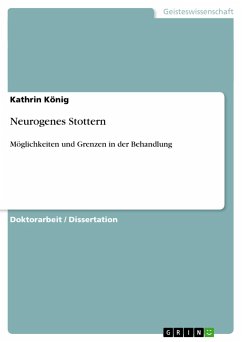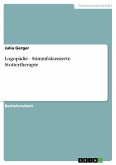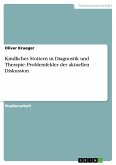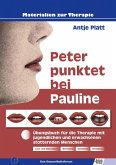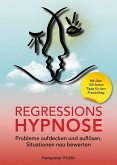Doktorarbeit / Dissertation aus dem Jahr 2009 im Fachbereich Psychologie - Beratung, Therapie, Note: 1,0, Technische Universität Dortmund, Sprache: Deutsch, Abstract: The international literature on neurogenic stuttering is sparse. Reports on neurogenic stuttering, especially those on the treatment of the disorder are hardly prevalent in German literature. Most of what is known about neurogenic stuttering is based on single case studies from Anglo-American literature.The present study follows the call for more systematically collected data on neurogenic suttering: an emipirical survey based on a random sample of 700 speech language pathologists in institutions for speech and hearing therapy in Germany was conducted. In a written inquiry, survey data on 61 patients with neurogenic stuttering were obtained, including demographic information as well as information on etiology, symptomatical characteristics, therapy targets, treatment type, focus of therapy, response to treatment andtreatment outcome. The results indicate that neurogenic stuttering can indeed be treated with the same methods typically used in the treatment of idiopathic stuttering. As of now there seems to be no singular symptomatic feature of neurogenic stuttering that is suited as a criterion for differential diagnosis. Patients with neurogenic stuttering can share the same core symptoms, as well as the same secondary behaviors including associated movements and anxiety reactions as patients with idiopathic (developmental) stuttering.Good prognosis for neurogenic suttering patients can be expected by using similar methods as in idiopathic stuttering therapy, especially in cases with high therapy motivation and an initially accurately practiced stuttering modification or fluency shaping technique added by psycho-social methods, e.g. in-vivo-training or anxiety reduction.
Hinweis: Dieser Artikel kann nur an eine deutsche Lieferadresse ausgeliefert werden.
Hinweis: Dieser Artikel kann nur an eine deutsche Lieferadresse ausgeliefert werden.

